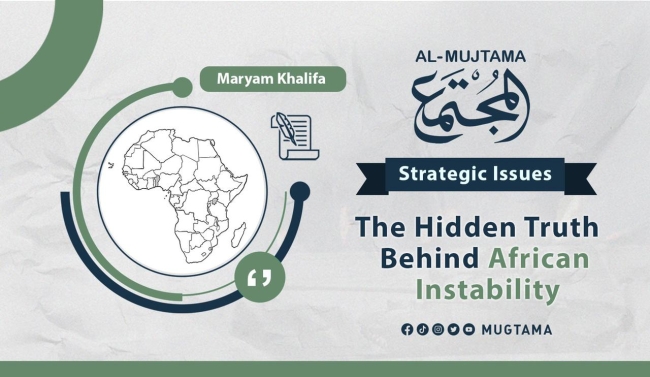The Hidden Truth Behind African Instability Featured
Unfortunately, the colonial past of Africa still has the greatest effect on the continent today. It's critical to understand how the colonial past still intensely influences the present.
The Legacy of Colonization
Back in 1884, something called the Berlin Conference happened. This event was all about dividing up Africa among European countries like France and Britain. They didn't just want the land, though. They also wanted to make Africans believe that everything about their own culture was awful and that everything Western, especially French, and British, was excellent. This way of thinking still affects Africa today.
Divided Nations
One of the consequences of colonization was that Africa was divided into many small countries. This made it harder for African nations to unite or cooperate and have a strong voice on the world stage. In 1963, African leaders met in Addis Ababa, Ethiopia, and they wanted Africa to be united. But sadly, they couldn't agree on how to do it. Some wanted a united Africa, while others wanted to take things slow. This division still exists today.
Pact for the Continuation of Colonization
France played a big role in Africa's history. Between 1958 and 1961, they gave African countries their independence, but with a catch. They made these countries sign a document called the "Pact for the Continuation of Colonization." This document had many unfair terms. For example, France took control of at least 50% of each country's bank reserves and made them use a currency called the CFA franc, which only France could print. This meant that African countries had to rely on France and couldn't make their own decisions.
The Exploitation of Africa
France and other European countries have been taking a lot of money out of Africa for years. They invest a small amount, like 14 billion dollars, and get huge returns, like 300 billion dollars. In total, France has taken over 500 billion dollars from Africa. This is a lot of money that could have been used to help African people and develop the continent. It's really unfair!
The Impact Today
So, how does all of this affect Africa today? Well, the division among African nations makes it harder for them to work together and have a strong voice in the world. The unfair terms imposed by France and other colonizers continue to limit the independence and economic growth of African countries. It's a tough situation, but it's important for us to understand and work towards change.
The Dark History
Throughout history, African leaders who have tried to do what's best for their countries have faced a grim fate. Many of them were assassinated, often with the help of foreign powers like France. These leaders were targeted because when a valuable natural resource was discovered in their country, outside forces wanted to take control. They would create chaos and civil wars, all while siphoning off the country's resources.
A Shocking Story
Dr Arikana Chihombori-Quao, a medical doctor and activist from Zimbabwe, now living in the USA tells the following story:
"Let me tell you about a particular incident that would have remained unknown if not for the truth coming to light. About twenty-five years ago, a group of young wealthy individuals, who happened to be white, were having a good time in Cape Town. They learned about Equatorial Guinea, a newly discovered country with vast resources, and decided to plan a coup. Their plan was to take advantage of the ongoing civil war in Equatorial Guinea, causing suffering for the locals while they seized control.
A Critical Mistake
However, these individuals made a crucial mistake. They had two planes, one of which was supposed to stop in Zimbabwe to pick up more ammunition before heading to Equatorial Guinea. As the plane was about to take off in the Caribbean, someone noticed the suspicious nature of their mission. It was none other than President Mugabe of Zimbabwe, who wondered why these young people needed such powerful ammunition for a hunting trip in Equatorial Guinea.
President Mugabe decided to investigate further and discovered their true intentions. He allowed them to land in Zimbabwe but promptly arrested them. The leader of this group turned out to be the son of the former Prime Minister of the United Kingdom, Margaret Thatcher. She had to personally intervene and pay a hefty sum to secure her son's release.
A Narrow Escape
If these young people had succeeded, Equatorial Guinea would have faced yet another coup. This is just one example of the countless instances where African countries have been destabilized by external forces.
The Real Agenda
Today, instead of overt coups, these external forces create instability in African countries. When you hear about instability in an African nation, it's essential to question what is truly happening. The official narrative may distract you from the real issues at hand. We must be aware and not allow ourselves to be used as instruments of our own self-destruction.


